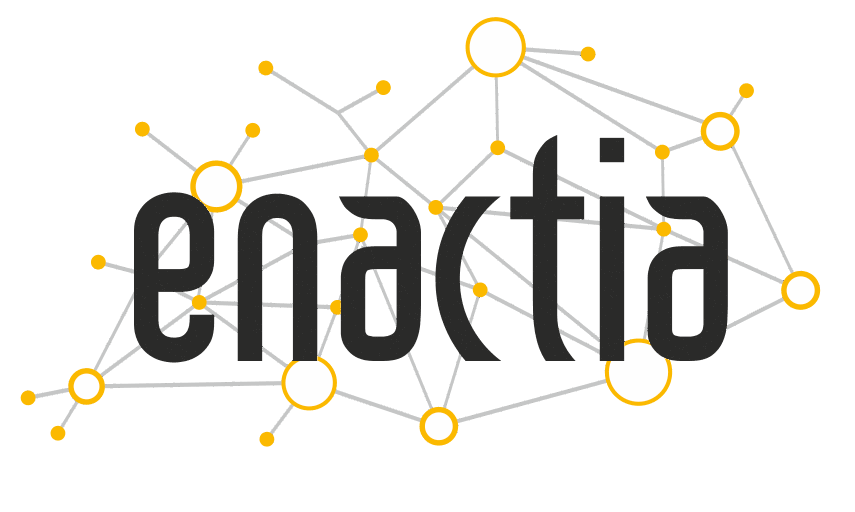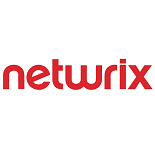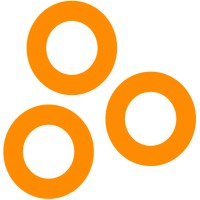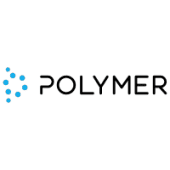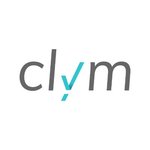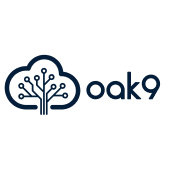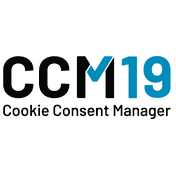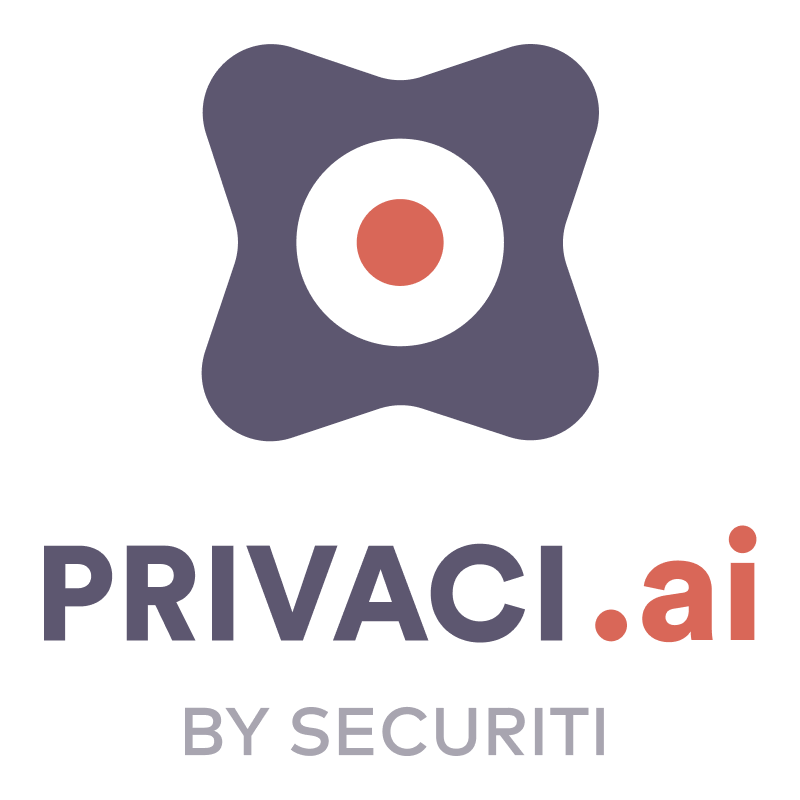What Is GDPR compliance Software?
For companies and organizations that handle the personal data of EU people, GDPR compliance software is an essential tool. It is intended to assist enterprises in adhering to the General Data Protection Regulation (GDPR), a set of stringent guidelines for individual privacy and data protection in the EU.
Businesses can lower the risk of non-compliance and the related fines by using this software to handle and protect personal data in line with GDPR standards. The ability of GDPR compliance software to recognize and categorize personal data, regardless of where it is located within the company, is one of its primary benefits.
Names, email addresses, IP addresses, and other private information are included in this. Businesses can use the program to monitor who has access to personal data, where it is kept, and how it is being utilized. For GDPR compliance, this degree of openness is necessary. The ability of GDPR compliance software to detect and notify data breaches is another essential aspect.
Should a data breach occur, the program can promptly identify it and notify the relevant parties and authorities within the necessary 72-hour window. This is essential for GDPR compliance because there can be severe consequences for not reporting a data breach. Additionally, GDPR compliance software provides strong data security features including encryption and safe data storage.
This guarantees that personal information is shielded from cyber dangers and unlawful access, and that only authorized personnel can access it. Features for handling data subject requests, including data access, deletion, and rectification, are also included in this software. It enables companies to save time and effort by effectively responding to these requests, as mandated by GDPR.
Selecting a trustworthy and dependable supplier is crucial when attempting to invest in GDPR compliance software. Take into account elements like customer service, data security protocols, program usability, and functionality. Utilize demonstrations and free trials to evaluate the software and select the one that best suits the requirements of your company.
What Are The Recent Trends In GDPR Compliance Software?
Since the General Data Protection Regulation (GDPR) went into force in 2018, businesses all over the world have been working to meet its stringent guidelines for safeguarding personal information. Because of this, there has been a steady rise in demand for GDPR compliance software in recent years.
To assist you in selecting the finest GDPR compliance software for your company, we will go over the most recent developments.
1. Artificial Intelligence (AI) And Automation: Automation and artificial intelligence (AI) are two of the most important developments in GDPR compliance software. Through the automation of data mapping, consent management, and data subject access requests, these solutions can assist enterprises in streamlining their compliance operations. Businesses can save time and money by using them to detect and stop possible data breaches.
2. Solutions Based On The Cloud: Many GDPR compliance software programs now provide cloud-based solutions due to the growing popularity of cloud computing. This gives businesses flexibility and scalability while allowing them to safely store and manage their data. Additionally, cloud-based solutions make remote access and communication simpler, which is essential in today's remote work environment.
3. Improved Features For Data Security: Since GDPR places a strong emphasis on data security and protection, compliance software has been developing steadily to offer better data security capabilities. To guarantee the secure management of personal data, they may include data masking, encryption, and data protection guidelines. Additionally, features like data monitoring and access control assist firms in meeting GDPR's data protection standards.
4. Software Integration: Integration with other tools and software that businesses use is another trend in GDPR compliance software. This makes it possible for data to move smoothly and makes managing compliance initiatives simpler. For instance, companies can monitor and control client consent for data processing by integrating with customer relationship management (CRM) systems.
5. Designing Privacy: With GDPR, the idea of "privacy by design" has become increasingly important, and compliance software is now using this idea in their products. This indicates that the program was created with the security of personal information in mind, allowing businesses to incorporate privacy into their systems and procedures from the start.
Benefits Of Using GDPR compliance Software
Businesses that operate in the EU or handle the personal data of EU people now place a high premium on complying with the General Data Protection Regulation (GDPR). Organizations must have strong systems in place to ensure GDPR compliance because of the stringent regulations and significant penalties for non-compliance. Software for GDPR compliance can help with this. Software for GDPR compliance is intended to assist businesses in managing and upholding adherence to the rules.
It provides a number of features and functionalities that help organizations in addition to making the compliance process easier. Let's examine some of the main advantages of utilizing software for GDPR compliance.
1. Centralized Data Management: Using GDPR compliance software offers a centralized platform for managing and storing personal data, which is one of its biggest benefits. Businesses can now more easily track and keep an eye on all the personal data they have, ensuring that they are in compliance with GDPR regulations.
2. Automated Data Processing: A number of data processing operations, including data mapping, consent management, and data subject requests, are automated by GDPR compliance software. In addition to saving time, this lowers the possibility of human error, which is essential for GDPR compliance.
3. Enhanced Security: To shield personal information from online attacks, GDPR compliance software usually includes cutting-edge security measures. This covers data backup and recovery, encryption, and two-factor authentication. Organizations may guarantee that personal data is always safe and secure by utilizing such software.
4. Customizable Workflows: Businesses may tailor workflows to meet their unique compliance requirements with GDPR compliance software, which is an additional advantage. This guarantees that businesses may follow GDPR regulations while also taking into account their own particular procedures and needs.
5. Better Management Of Data Subject Rights: GDPR grants data subjects the ability to view, update, and remove their personal information. Businesses may more easily fulfill these rights and stay in compliance with GDPR thanks to tools that help manage data subject requests.
6. Cost Savings: GDPR compliance software can assist businesses in reducing compliance expenses by centralizing data management and automating a number of procedures. This entails lowering the requirement for manual labor, lowering the possibility of penalties, and enhancing general operating effectiveness.
Important Factors To Consider While Purchasing GDPR compliance Software?
To make sure you are getting the best solution for your company's needs, it is crucial to carefully consider a number of things when buying GDPR compliance software.
The following are important considerations while choosing GDPR compliance software:
1. GDPR Compliance: Maintaining compliance with the rules outlined by the General Data Protection Regulation is the major reason for investing in GDPR compliance software. Verify that the software you select is especially made to satisfy GDPR regulations and is updated often to reflect any modifications.
2. Features For Data Security: Seek software that has strong features for data security, like data encryption, access limits, and data monitoring. These characteristics are essential for shielding private information from potential breaches and illegal access.
3. Customization Options: Every company has different data protection needs, therefore the GDPR compliance software you select should allow you to customize it to meet your needs. This will guarantee that the software is compatible with your business procedures and that you are not paying for things that you do not require.
4. Cross-Border Data Transfers: Make sure the software you select has the capabilities and features required to adhere to GDPR requirements for international data transfers if your company transfers data across borders. By doing this, you can steer clear of any possible fines or penalties for non-compliance.
5. Capabilities For Data Audit And Reporting: Businesses must demonstrate compliance with GDPR, therefore it's critical to have software that can track all data activities and produce comprehensive audit reports. In addition to assisting with compliance, this will provide you with information about how you handle data.
6. User-Friendly Interface: Your company will only encounter more difficulties if the software is complicated and hard to use. Make sure the user interface of the GDPR compliance software you select is simple to use and comprehend.
7. Customer Service And Training: Having dependable customer service and training options is essential, just like with any program. To make sure that you and your team are prepared to utilize the software efficiently, look for a vendor that provides thorough training and support. You may choose the best GDPR compliance software to suit your company's requirements and guarantee adherence to GDPR rules by taking these criteria into account.
What Are The Key Features To Look For In GDPR Compliance Software?
Organizations are looking for dependable and effective ways to make sure their data management procedures comply with the General Data Protection Regulation (GDPR) as the deadline for compliance draws near. Using GDPR compliance software is one important remedy. However, choosing the best option for their company might be overwhelming for customers due to the abundance of options accessible in the market.
Here are the essential characteristics to search for in GDPR compliance software to streamline the purchasing process:
1. Data Mapping And Inventory: Understanding what data you have, where it is kept, and who may access it is essential to GDPR compliance. To find and monitor personal information within your company, look for software that has data mapping and inventory features.
2. Consent Management: In accordance with GDPR, businesses must get people's express consent before processing their personal data. Features for managing and recording user consent, including the ability to revoke consent if necessary, should be included in the software.
3. Data Protection Impact Assessment (DPIA): Processing operations that pose a significant danger to people's rights and liberties must undergo a DPIA. Seek software that provides a thorough and simple method for doing DPIAs, storing the findings, and monitoring any necessary steps.
4. Data Subject Request Management: Among other rights, GDPR grants people the ability to view, update, and remove their personal data. Tools to effectively handle and reply to these requests should be included in your program to guarantee adherence to the stringent deadlines established by the rule.
5. Data Breach Detection And Notification: Within 72 hours of discovering a data breach, enterprises are required to notify the impacted parties and the appropriate regulatory bodies. Select software that can identify breaches, report them quickly, and offer templates for breach notification letters.
6. User Access Controls: GDPR mandates that only authorized personnel have access to personal data. Make that the program supports log monitoring and user authorization settings, among other access limits.
7. Encryption And Anonymization: GDPR promotes the use of encryption and anonymization methods to safeguard personal information. Features for encrypting and/or anonymizing data should be included in your software, along with the ability to integrate encryption tools if necessary.
8. Compliance Reporting And Auditing: To prove compliance with GDPR, it is essential to be able to produce compliance reports and audit trails. Seek for software with auditing and reporting features that may be customized.
9. Automatic Updates: Your software should be able to adjust to any modifications to the GDPR requirements, as compliance is a continuous process. To remain compliant with any new standards, use a service that offers automatic updates.
10. User-Friendly Interface: Last but not least, the program should have an intuitive user interface that enables non-technical users to easily navigate and make efficient use of all the functions. This will guarantee seamless implementation and utilization within your company.
Why Do Businesses Need GDPR compliance Software?
Data protection has emerged as a major concern for companies of all sizes in the current digital era. Since the General Data Protection Regulation (GDPR) was introduced in 2018, businesses that handle the personal data of individuals in the European Union (EU) must abide by stringent rules or risk facing harsh penalties. What is GDPR compliance software necessary for businesses? Let's examine it more closely.
Observance of the Rules The primary motivation for companies to purchase GDPR compliance software is to guarantee adherence to the stringent guidelines established by the European Union. Heavy fines of up to €20 million or 4% of a company's yearly worldwide turnover, whichever is bigger, may be imposed for noncompliance. Businesses can simply monitor and control their data processing operations and make sure they comply with GDPR regulations by utilizing GDPR compliance software.
Security and Protection of Data GDPR is all about safeguarding and protecting people's personal information. According to the regulations, companies must have the right organizational and technical safeguards in place to prevent unauthorized access, disclosure, or loss of personal data. To protect sensitive data, GDPR compliance software provides features including data encryption, access limits, and data backup and recovery.
Management of Data Privacy The monitoring of data privacy is another crucial component of GDPR. Companies must be fully aware of the types of personal information they gather, how they preserve and use it, and why. GDPR compliance software facilitates the management and protection of personal data by enabling businesses to map their data flows and develop data inventories.
Effective Processing of Data Subject Requests Individuals are also given rights under GDPR, such as the ability to view, update, and remove their personal information. Companies need to have procedures in place to deal with these requests in a certain amount of time. By automating request handling, monitoring response times, and offering an audit trail, GDPR compliance software simplifies this procedure.
Management of Reputation A company's reputation may suffer in addition to fines for noncompliance with GDPR. Consumers are growing more aware of their rights regarding data privacy, and they are more inclined to believe companies that show that they are dedicated to protecting customer information. Purchasing GDPR compliance software improves a company's credibility and reputation by demonstrating to clients that it takes data privacy seriously.
How Much Time Is Required To Implement GDPR compliance Software?
The time required to implement GDPR compliance software can vary based on a number of factors. These elements include your company's size and complexity, its readiness for GDPR compliance, and the features and functionalities of the software you select. The installation procedure often takes a few weeks to many months.
To ensure correct software setup and configuration, it is advised to allot a minimum of 6–12 weeks for the implementation phase. Assessing your present data processing operations and looking for any compliance gaps should be your first course of action during this period. This is crucial since the software will only work well if it is customized to the unique requirements and procedures of your company.
The program must then be set up in accordance with your data protection rules and practices. Workflows, data mapping, and consent management elements may need to be set up. To guarantee a seamless and effective implementation, it is imperative that all pertinent departments and stakeholders be included at this point. Testing and training will be done after the software is configured to make sure it satisfies the needs of your company and that every employee knows how to use it.
Depending on the software's complexity and user count, this could take several weeks. At last, the software will be prepared for implementation, allowing your company to start the GDPR compliance procedure. As your organization's data processing operations and legal requirements change, it is crucial to remember that the implementation process is a continuous one that should be examined and modified on a regular basis.
In conclusion, the amount of time needed to deploy GDPR compliance software varies depending on a number of criteria, however it is advised to allow at least 6–12 weeks. In order to guarantee a successful and compliance deployment, this time limit permits appropriate assessment, configuration, testing, and training.
What Is The Level Of Customization Available In GDPR Compliance Software?
The degree of customization offered by GDPR compliance software varies based on the features and particular product. Nonetheless, the majority of GDPR compliance software generally provides a significant degree of flexibility to satisfy the particular requirements of various companies and sectors. The flexibility to customize the software to your unique data processing operations and regulations is one of the most important components of GDPR compliance.
This includes having the ability to alter consent management procedures, data mapping, and data preservation guidelines. You can make sure that the program complies with internal policies and procedures of your company by utilizing customisable features. Furthermore, some GDPR compliance software provides customisable alerts and reporting, enabling you to establish particular criteria and get warnings when there are any compliance problems.
Businesses who handle a lot of personal data or have extensive data processing operations may find this to be extremely useful. The majority of GDPR compliance software also provides some degree of user experience customization, enabling you to modify the features, layout, and appearance to suit your tastes. This can involve integrating with other tools and systems, creating bespoke dashboards, and adding or removing specific fields.
It's crucial to remember that different software suppliers may offer varying degrees of customisation, with some possibly providing more sophisticated possibilities than others. To choose the product that best suits the demands of your company, it is crucial to thoroughly consider each one's customization potential.
Which Industries Can Benefit The Most From GDPR Compliance Software?
Businesses throughout the world now face a very different data protection environment because to the General Data Protection Regulation (GDPR). Regardless of where the information is processed or stored, the rule seeks to protect people's personal information inside the European Union. Since it affects all businesses and organizations that deal with personal data, GDPR compliance is essential to their operations. Although all companies are required to abide with GDPR, certain sectors stand to gain the most from the use of GDPR compliance software.
These sectors are governed by stringent regulations and deal with a lot of private, sensitive information. Now let's explore the main sectors that stand to gain the most from integrating GDPR compliance software into their operations.
1. Medical Care: The GDPR applies to the healthcare sector since it handles sensitive personal data, including medical records. Strict data protection regulations must be followed by healthcare institutions in order to ensure the privacy of their patients' personal information. Healthcare firms can ensure compliance with the regulations by managing and protecting sensitive data with the aid of GDPR compliance software.
2. Finance And Banking: Large volumes of personal data, including identification and financial information, are also handled by the banking and finance sector. To improve data security and stop data breaches that can lead to financial crime, these firms need to abide by GDPR. These businesses can manage and safeguard personal data with the aid of GDPR compliance software, guaranteeing adherence to the law and preventing significant fines.
3. Online Shopping: E-commerce companies deal with a lot of personal information, including credit card numbers, addresses, and client names. Since cross-border e-commerce transactions occur, these businesses must abide with GDPR to safeguard the personal information of EU citizens. These companies may ensure correct handling and compliance with the rule by centralizing and securing consumer data with the aid of GDPR compliance software.
4. Marketing And Promotion: To reach their target audience, the marketing and advertising sectors rely significantly on data. Organizations must make sure they have the required consents and permissions from people before processing their personal data for marketing purposes in light of the GDPR. These companies can manage client data, guarantee proper consent management, and adhere to the regulations with the aid of GDPR compliance software.
5. Human Resources: Job applications and employment records are examples of sensitive personal data handled by HR departments. For these firms to protect the data of their employees and meet the standards of the GDPR, compliance is essential. HR departments may ensure compliance with GDPR and safeguard employee privacy by using GDPR compliance software to manage and secure personal data.
Conclusion
In conclusion, every company doing business in the European Union or handling the personal data of EU people must make sure that it complies with the General Data Protection Regulation (GDPR). Businesses may effectively manage and safeguard personal data, stay out of trouble with the law, and keep the trust of their clients by putting in place trustworthy GDPR compliance software.
It is crucial to take into account features like data mapping, consent management, and data subject request automation while searching for the best GDPR compliance software. In order to stay current with the constantly evolving rules, the software should also have user-friendly interfaces and offer frequent upgrades. It's also critical to assess the software provider's reputation and performance history.
Seek out reliable suppliers, check reviews, and take into account their training and customer service offerings. In order to adapt to future modifications in your company and the GDPR requirements, it is also critical to evaluate the software's scalability and adaptability. Finally, while budget allocation is important, it shouldn't be the only consideration. Long-term financial and reputational consequences could be avoided by your company by investing in a reputable GDPR compliance program.
All things considered, companies may make an informed choice and guarantee the safety of personal data while remaining in compliance with the GDPR by carefully weighing the functionality, dependability, and cost of different GDPR compliance software choices.


